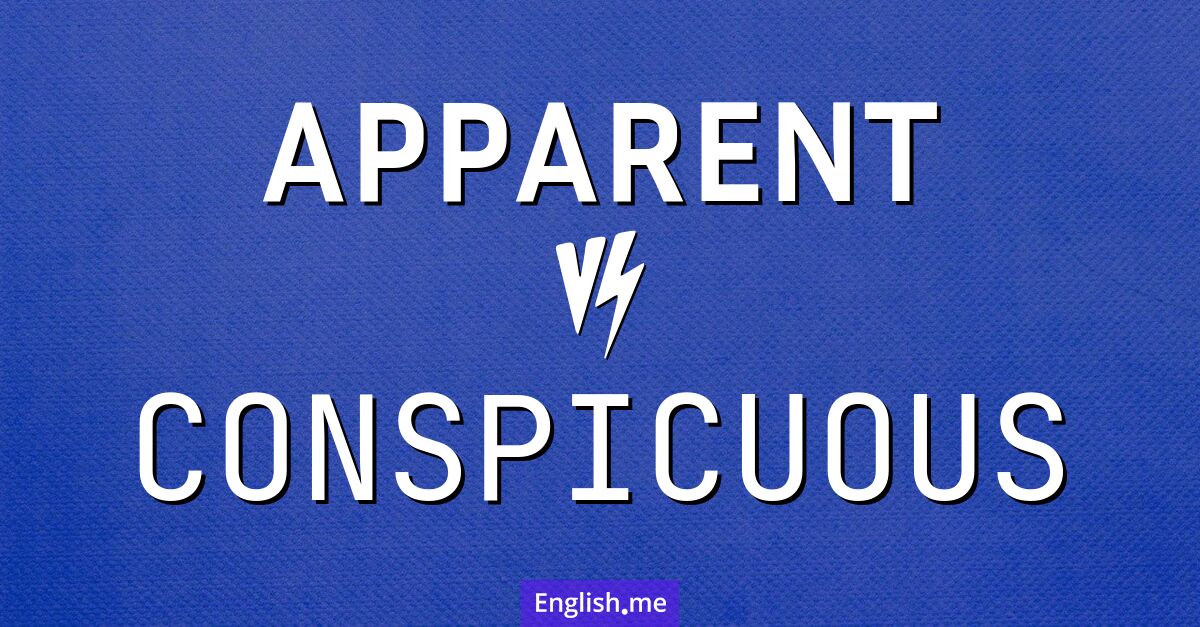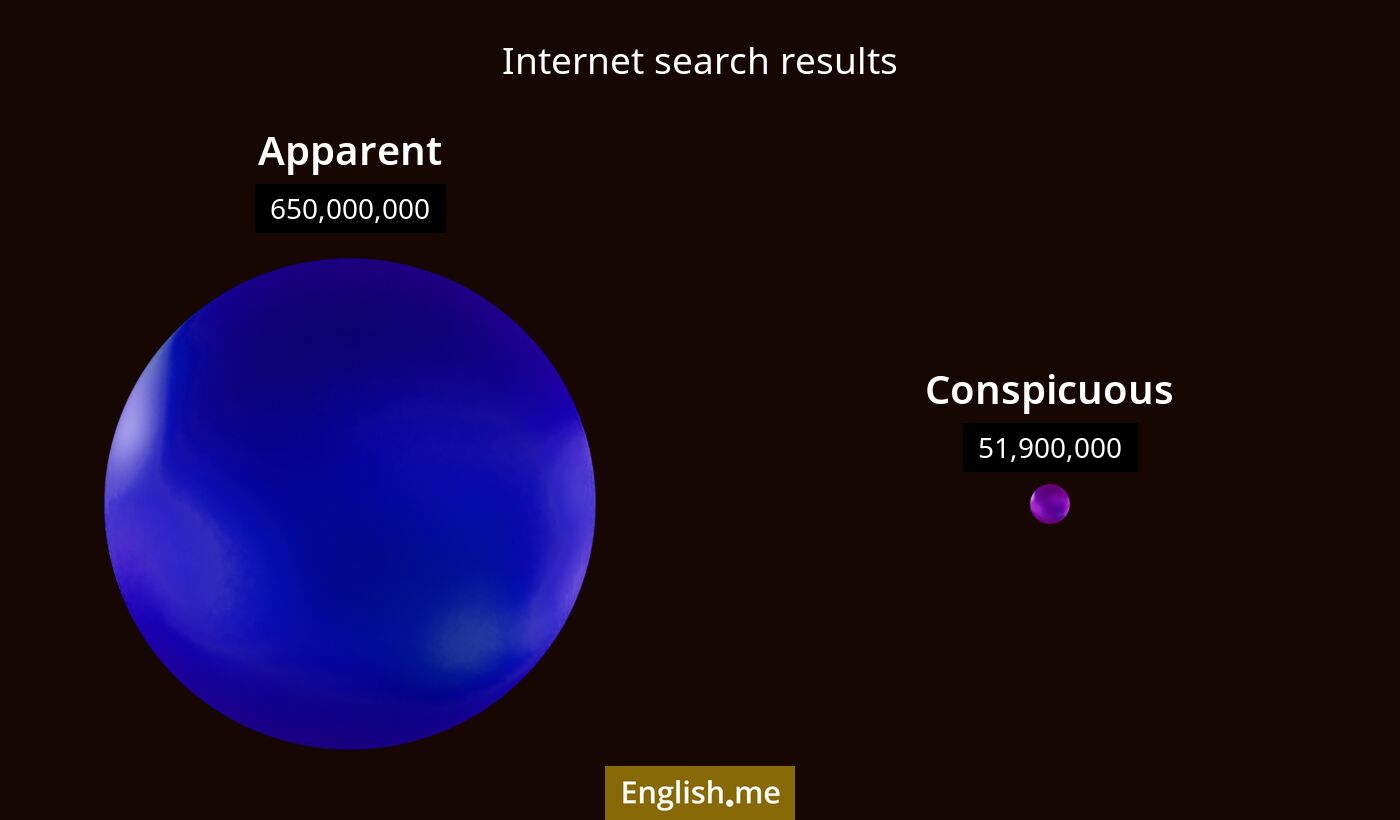Visible distinctions: exploring "apparent" vs "conspicuous"
Reviewed and edited by  Lloyd Cooper 27/10/2024, 17:27
Lloyd Cooper 27/10/2024, 17:27
English.me team member

 What is similar?
What is similar?
Both "apparent" and "conspicuous" describe things that are easily noticed or perceived. They both refer to the quality of something being clear or obvious to the observer.
 What is different?
What is different?
"Apparent" often refers to something that seems to be true based on visible evidence, but may not be the whole truth or could be misleading. "Conspicuous", on the other hand, implies something that is easily seen or stands out in an obvious way, often due to being out of the ordinary or attracting attention.
 Which one is more common?
Which one is more common?

 Examples of usage
Examples of usage
Apparent- It was apparent that she was upset after the meeting.
- The error was apparent to anyone who looked closely.
- He smiled with apparent confidence, though he felt nervous inside.
- Her red dress was conspicuous among the sea of black suits.
- The tower is a conspicuous landmark in the city skyline.
- He made a conspicuous mistake that caught everyone's attention.

 English
English español
español française
française italiano
italiano deutsche
deutsche 日本語
日本語 polski
polski česky
česky svenska
svenska Türkçe
Türkçe Nederlands
Nederlands